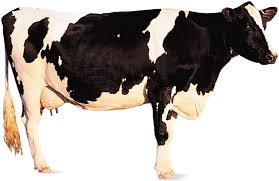
Cattle sickness causes havoc in Libya,
Near quiet has replaced the typical hum of hundreds of dairy milking machines on Najmeddine Tantoun's farm outside the city of Misrata in western Libya.
Due to an outbreak of foot-and-mouth disease, a highly contagious disease that affects animals with hooves, the farmer has lost nearly half of his cows.
Many cattle farmers claim they have not yet received immunisations for their animals as dairy and meat output falls as a result of the epidemic in Libya.
Although oil resources provide the majority of the North African nation's income, Misrata is a significant dairy hub that once produced 70,000 litres of milk a day.
Now, output is only 20,000 per day, according to 45-year-old Salem al-Badri, head of the city’s committee of cattle farmers.
According to 27-year-old Tantoun, "the future looks bleak."
He remarked, "I nearly lost everything." About 300 of the 742 cows were lost. Our livelihoods are being destroyed by this sickness.
Cattle, sheep, and goats are among the ruminant livestock that are most affected by the disease. It results in blisters, fever, and occasionally even death.
"On the verge of a disaster" According to Badri's committee, some farmers in Misrata have stated that the sickness has caused them to lose almost 70% of their cattle.
During a visit to Tantoun's farm, Badri, who also oversees the city's animal health office, declared, "We are on the verge of a catastrophe."
"We have suffered greatly as a result of the vaccine delay," he continued. Since the majority of the cows in Misrata are now afflicted, we must kill them in order to end the epidemic.”
Consumers have also experienced financial difficulty as a result of the disease, as shortages have increased the cost of dairy and meat.
According to Badri, global buyers are becoming more cautious about buying Libyan cowhide due to another cattle condition known as lumpy skin disease.
The 2011 revolution that toppled long-time tyrant Moamer Kadhafi left Libya reeling from years of war.
It is still divided between Prime Minister Abdulhamid Dbeibah's UN-recognized government and the opposing eastern administration supported by Khalifa Haftar, a military leader.
Cattle farmers accuse the government of failing to implement preventative safety measures and of responding slowly during the outbreak, which resulted in delays in getting vaccines to the impacted areas.
According to Badri, "if the vaccinations had been delivered last November, we would not be here”.
"I have repeatedly requested that the authorities provide us with the vaccines so that we can save the farms," he stated.
The Tripolin authorities did not reply when AFP reached out to them.
"Economic catastrophe"
With assistance from the UN Food and Agriculture Organisation, authorities in the east and west have implemented emergency vaccination programs; nonetheless, several farmers have complained that the reaction has frequently been too late.
According to Badri, the attorney general has received a lawsuit from a group of cattle producers.
The agriculture ministry has stated that the illicit importation of animals without veterinary control is one of the primary reasons of the spread of these diseases.
Furthermore, it stated that when incidents are not promptly reported to local authorities, contamination gets out of control. Some cattle might have died without being reported either.
Tantoun stated that he had "given everything" to make his farm successful and that "we depend entirely on these animals for our livelihood."
"The loss of so many cows is a financial catastrophe."
He urged Misrata authorities "to compensate" cattle owners whose animals have contracted the disease in addition to "providing the necessary vaccines."
Ali Ghabag, a farmer, claimed that he has given up raising cattle entirely "out of fear for the future."
The 40-year-old stated, "Nobody wants to continue in this sector anymore."
"We don't know if we will overcome this crisis, and the risks have grown too great."





